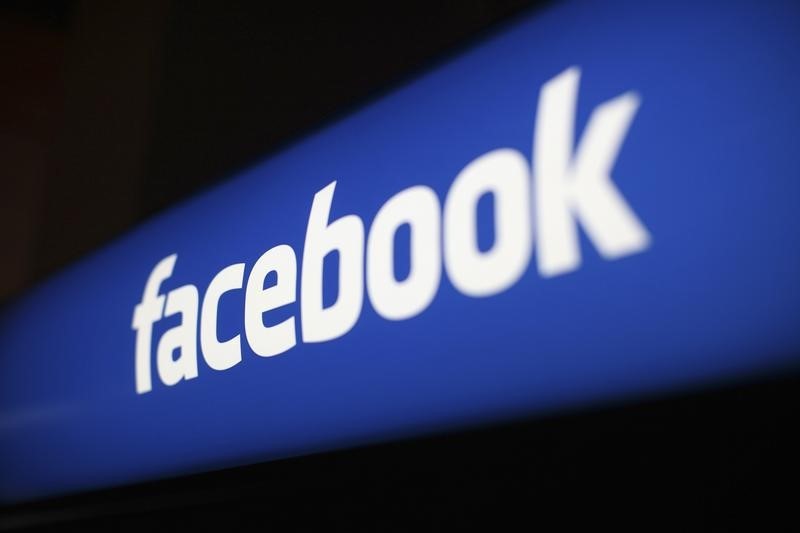(Bloomberg) -- For years, the so-called FAANG stocks have driven Wall Street higher, fueled by surging revenue, an environment that prized growth over all else, and investor sentiment that viewed the megacap technology and internet companies as ones that could do no wrong.
That narrative showed signs of cracking in 2018. In 2019, it could collapse.
The FAANGs -- an acronym that refers to Facebook (NASDAQ:FB), Apple, Amazon (NASDAQ:AMZN), Netflix (NASDAQ:NFLX), and Google-parent Alphabet (NASDAQ:GOOGL) -- were volatile throughout 2018, with pronounced gains in the first half of the year dramatically reversing in the second half. While Netflix and Amazon remain up about 40 percent on the year, all five have tumbled from record levels, with declines ranging from Alphabet’s 17 percent slump to Netflix’s 37 percent collapse.
Facebook is the group’s worst performer in 2018, having dropped 19 percent year-to-date and by more than a third from its July record. Apple shares (NASDAQ:AAPL) are off nearly 30 percent from a historic valuation above $1 trillion, a decline that cost its status as the largest stock on the market.
Investors say the downturn probably isn’t over as the companies face their riskiest environment in years with slowing growth, rising macroeconomic uncertainties, particularly with respect to trade policy, and tighter monetary policy.
“The conditions that have allowed these kinds of high-growth stocks to outperform have changed, if not reversed,” said David Lafferty, who helps oversee almost $1 trillion in assets as chief market strategist at Natixis Advisors. “The Fed’s tightening is getting to where it’s starting to hurt. GDP should decelerate in 2019, which will lead to a natural decline in earnings growth. What that means for multiples and investor sentiment is up in the air, but I just don’t see much upside.”
Such macroeconomic issues have added to concerns that the group’s years-long growth story could be coming to an end. Facebook has warned on its growth throughout 2018, and the social-media company, a target of bipartisan criticism, could face increased government regulation on issues surrounding user data, misinformation, and privacy.
Both Amazon and Alphabet’s sales missed analyst estimates in their most recent quarter, triggering the latest FAANG downturn. Since then, there have been multiple signs of weakness surrounding demand for Apple’s newest iPhones, leading to a historic amount of caution from the analysts who cover the stock.
Netflix’s most recent quarter pointed to continuing growth, and it is the only stock of the five where analysts haven’t ratcheted down their targets. But the stock is seen as pricey because of its triple-digit multiple and it has also come under heavy selling pressure as overall sentiment has shifted.
“The positive narrative is now broken. Momentum investors are looking at these stocks in a different way than they used to,” said Mark Stoeckle, chief executive officer of Adams Funds, in a phone interview. “We can just find better stocks, both in tech and outside of tech, that offer better growth, or better valuations, or fewer risks. The days where the only way you could outperform was to have a taste of the FAANGs are over.”
In another sign of how sentiment has soured, exchange-traded funds that track the technology sector saw massive outflows over the month of November, a period where the group was particularly volatile.
The group’s prospects have broader implications. They are among the largest stocks on the market, giving them an outsized influence on major indexes, and they are often seen as a proxy for overall investor sentiment. Should they continue to struggle in 2019, Wall Street is likely to as well.
“If the FAANGs can resume their leadership role in the market, that would suggest that the economy cycle can perpetuate for longer than people seem to feel right now,” said Michael Mullaney, director of global market research at Boston Partners. “I’m not convinced. Some of these names are crazily priced, and tech regulation is an issue that will get worse before it gets better.”
Mullaney distinguished between the stocks and the longer-term prospects of the companies, saying Amazon, Alphabet, and Netflix would remain dominant players even in the event of a recession. This, he added, suggests that the group would remain widely followed in 2019, even if its performance didn’t match the gains of recent years.
“The FAANG names are reminiscent of cult stocks, and I don’t think the cult effect has been broken,” he said. “I don’t want to say the bubble has burst because I’m sure some people will plow back in looking for growth.”
